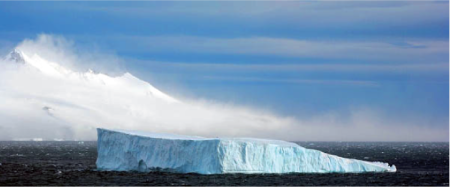| SEARCH |
-

Nov 17, 2015
Reflections on a three-decade legacy
The International Geosphere-Biosphere Programme (IGBP) will come to a close at t...
-
Nov 17, 2015
Use of and access to content on this website
Text and images produced by IGBP in house are free to use with appropriate credi...
-
Nov 12, 2015
Bella Gaia performance and panel discussion to mark IGBP's closure
A musical performance by Bella Gaia will celebrate the achievements and legacy o...
-

Towards Future Earth:
evolution or revolution?
During its three decades of existence, the International Geosphere-Biosphere Pro...
-
A personal note on IGBP and the social sciences
Humans are an integral component of the Earth system as conceptualised by IGBP. João Morais recalls key milestones in IGBP’s engagement with the social sciences and offers some words of advice for Future Earth.
-
IGBP and Earth observation:
a co-evolution
The iconic images of Earth beamed back by the earliest spacecraft helped to galvanise interest in our planet’s environment. The subsequent evolution and development of satellites for Earth observation has been intricately linked with that of IGBP and other global-change research programmes, write Jack Kaye and Cat Downy .
-
Deltas at risk
Around 500 million people worldwide live on deltas, but many of the world's deltas are sinking due ...
-
Climate change: the state of the science
A new data visualization released on the first day of the plenary negotiations at the UNFCCC’s clima...
-
Climate Change:
the State of the Science
Videos now online from the Stockholm public forum to mark the launch of the IPCC's climate report, 2...
Towards an integrated observing system for ocean carbon and biogeochemistry at a time of change
Gruber N, Körtzinger A, Borges A, Claustre H, Doney S, Feely R, Hood M, Ishii M, Kozyr A, Monteiro P, Nojiri Y, Sabine C, Schuster U, Wallace D W R and Rik Wanninkhof
DOI: 10.5270/OceanObs09.pp.18.
pp. 8

Ocean biogeochemical cycles are currently undergoing fundamental changes – largely as a consequence of the addition of greenhouse gases to the atmosphere. The oceans are getting warmer, and their pH and oxygen levels are decreasing. Further changes may arise as a consequence of the perturbation of the global nitrogen cycle, leading to higher inputs of fixed nitrogen to the ocean by rivers and enhanced deposition of nitrogen to the surface ocean. These biogeochemical changes plus the concomitant changes in ocean circulation will have profound effects on some of the ocean’s key services, i.e. its capability to mitigate climate change by removing anthropogenic CO2 from the atmosphere, and its provision of important ecosystem services such as food and biodiversity. Documenting, understanding, and predicting these biogeochemical changes require a concerted and sustained observational effort that includes both the continuation of well-tested approaches and the development and implementation of novel systems. Of particular importance for the first set of approaches are the sustaining and extension of (i) a surface ocean
volunteer ocean ship-based observing system primarily focusing on the determination of the air-sea exchange of CO2 and upper ocean changes in carbonate chemistry, of (ii) an interior ocean research-ship based system focusing on large-scale interior changes of the ocean’s biogeochemistry (carbon, oxygen, nutrients, etc), and of (iii) ship-based and moored time-series observations at key sites, including the coastal ocean. Of particular importance for the second set of approaches are (i) the accelerated improvement, development and implementation of new observational elements on the Argo array (especially oxygen, but also nutrient and bio-optical sensors), and (ii) the development, testing, and deployment of novel sensors for the ocean’s carbon system. Concerted synthesis efforts involving also novel approaches for merging observations with biogeochemical models will ensure that these observational elements realize their synergistic potential.

IGBP closed at the end of 2015. This website is no longer updated.
-

Global Change Magazine No. 84
This final issue of the magazine takes stock of IGBP’s scientific and institutional accomplishments as well as its contributions to policy and capacity building. It features interviews of several past...
-

Global Change Magazine No. 83
This issue features a special section on carbon. You can read about peak greenhouse-gas emissions in China, the mitigation of black carbon emissions and the effect of the 2010-2011 La Niña event on gl...
-
INTERGOVERNMENTAL PANEL ON CLIMATE CHANGE:
How green is my future?
UN panel foresees big growth in renewable energy, but policies will dictate just how big.
-
UK:
'The Anthropocene: a new epoch of geological time?'
Royal Society, Philosphical Transactions A




















